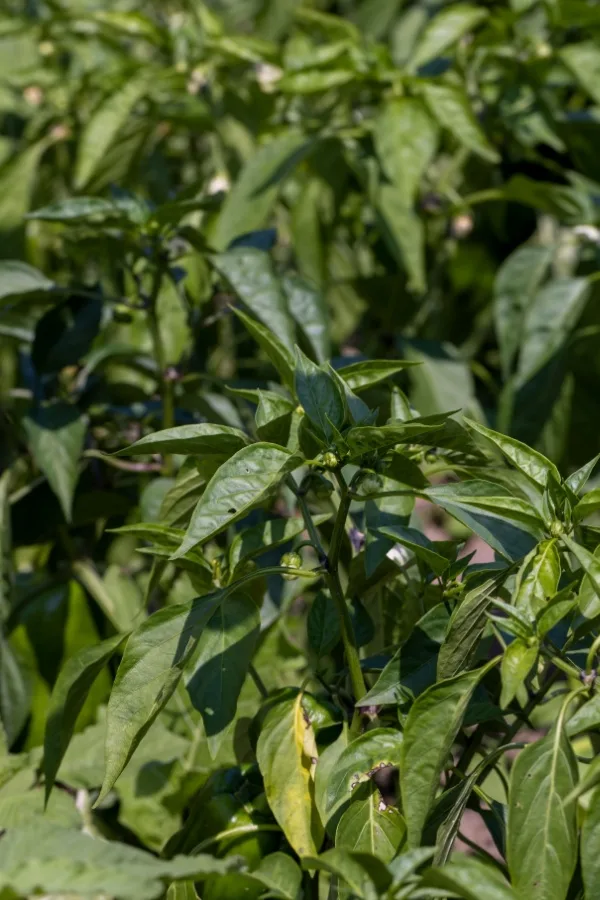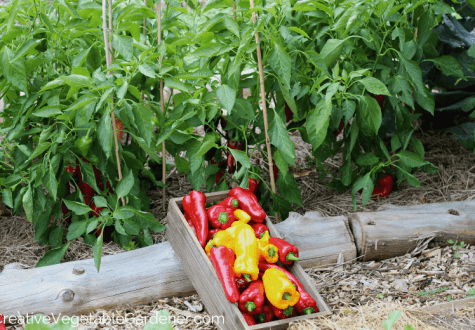Best Fertilizers for Peppers: Take Full Advantage Of Plant Health and Yield
Best Fertilizers for Peppers: Take Full Advantage Of Plant Health and Yield
Blog Article
Organic Vs. Synthetic Fertilizers: Which Is Best for Nurturing Healthy And Balanced Pepper Plants?
In the world of supporting healthy pepper plants, the choice between natural and artificial fertilizers stands as a crucial choice with significant implications. While both alternatives objective to provide essential nutrients to sustain plant growth, the nuances of their effect on the dirt, plant health, and the environment trigger a dispute that echoes throughout the horticulture area. Comprehending the distinctive benefits and prospective mistakes of each plant food type is essential for pepper farmers looking for to optimize their returns while maintaining an eco-conscious and sustainable approach.
Advantages of Organic Fertilizers
Organic plant foods offer a lasting and environmentally-friendly strategy to nourishing pepper plants, giving necessary nutrients without the use of artificial chemicals. These natural plant foods are obtained from natural sources such as garden compost, manure, bone meal, and algae, advertising soil wellness and biodiversity. Unlike synthetic plant foods, organic choices launch nutrients slowly, ensuring a consistent and well balanced supply for pepper plants to thrive.
One considerable advantage of organic plant foods is their ability to enhance dirt structure and water retention. By improving dirt wellness, organic fertilizers advertise useful microbial activity, which assists in nutrient uptake by pepper plants. In addition, organic plant foods lower the risk of chemical run-off, safeguarding water resources from pollution and protecting the atmosphere.
In addition, organic fertilizers add to lasting dirt fertility by promoting the growth of useful dirt microorganisms. These microorganisms help break down raw material, releasing nutrients in a type that is conveniently accessible to pepper plants. best fertilizers for peppers. By fostering a healthy soil environment, natural plant foods sustain lasting pepper farming techniques that benefit both plants and the environment
Drawbacks of Synthetic Fertilizers
Synthetic fertilizers, in comparison to their organic counterparts, present different downsides when made use of to nurture pepper plants, influencing both plant wellness and ecological sustainability. One significant downside of artificial plant foods is their tendency to leach nutrients from the soil quickly. This rapid leaching can result in nutrition discrepancies in the soil, triggering plants to deal with poisonings or shortages. Furthermore, synthetic fertilizers can harm advantageous soil microorganisms, such as earthworms and valuable microorganisms, interfering with the dirt community's balance.
Moreover, the overuse of artificial fertilizers can add to water air pollution. Excess fertilizers not taken in by plants can get rid of into water bodies, leading to eutrophication, where algae blossoms deplete oxygen degrees in the water, hurting aquatic life. Synthetic plant foods are commonly obtained from non-renewable sources, such as fossil fuels, adding to carbon emissions and ecological destruction during their production.
Nutrient Absorption Contrast
When comparing natural and artificial fertilizers in terms of nutrient absorption, organic fertilizers have the benefit of providing a much more balanced and slow-release resource of nutrients. Organic plant foods consist of a variety of macro and trace elements that are not just helpful for the plants however additionally advertise healthy and balanced soil microbial activity, which helps in nutrient uptake.
Moreover, natural plant foods boost dirt framework and water retention ability, permitting pepper plants to accessibility nutrients more efficiently. This improved soil top quality facilitates root development, enabling better nutrient absorption. Artificial plant foods, although originally improving plant development because of their high nutrient concentrations, may hinder long-lasting nutrient absorption by degrading soil wellness with time.
Ecological Effect Considerations

On the various other hand, artificial fertilizers, although usually even more immediately available and focused to plants, can have destructive results on the setting otherwise used properly (best fertilizers for peppers). Their manufacturing requires high power inputs, bring about greenhouse gas exhausts and adding to climate change. In addition, the drainage of excess artificial fertilizers can contaminate water resources, resulting in eutrophication and damaging aquatic environments.
Ideal Fertilizer Practices for Peppers
To achieve this, it is important to follow best fertilizer practices customized to the particular requirements of pepper plants. One crucial practice is to perform a dirt test before applying any type of fertilizers.
One more vital practice is to feed pepper plants at the right time. Typically, peppers take advantage of obtaining plant food at planting and then again when they begin to blossom. Over-fertilizing can cause nutrition imbalances and hurt the plants, so it is important to follow advised application prices.
Furthermore, selecting a balanced fertilizer with an NPK ratio that matches pepper plants' needs is basic. Eventually, integrating organic and synthetic fertilizers sensibly can help support healthy and balanced pepper plants while reducing ecological impact.
Final Thought

Organic plant foods supply a lasting and environmentally-friendly approach to beneficial pepper plants, giving necessary nutrients without the usage of synthetic chemicals. Unlike synthetic plant foods, natural choices launch nutrients gradually, guaranteeing a balanced and constant supply for pepper plants to prosper.
Artificial plant foods, in contrast to their organic counterparts, present numerous disadvantages when utilized to nurture pepper plants, impacting both plant health and wellness and ecological sustainability. When contrasting artificial and natural plant foods in terms of nutrient absorption, natural plant foods have the benefit of giving a more balanced and slow-release source of nutrients.Additionally, organic plant foods boost More Help dirt framework and water retention ability, permitting pepper plants to access nutrients a lot more efficiently.
Report this page